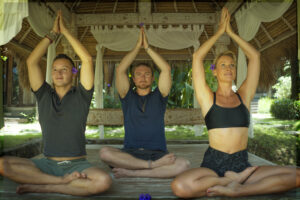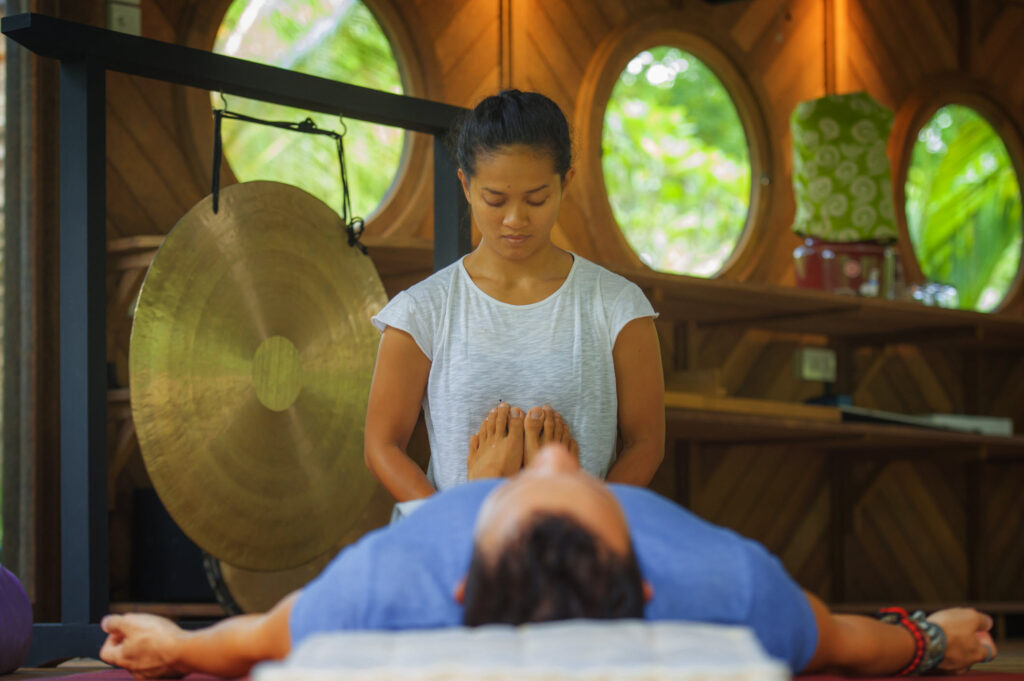“The concept of total wellness recognises that our every thought, word, and behaviour affects our greater health and well-being. And we, in turn, are affected not only emotionally but also physically and spiritually.” Greg Anderson
Wellness tourism is voluntary travel to worldwide destinations for the purpose of promoting health and wellbeing through the nurturing of body, mind and spirit. It refers to traveling for health and wellbeing reasons. The wellness tourism economy includes all expenditures that tourists make during a trip to improve or maintain their wellbeing.
The wellness tourism industry has been revolutionised due to a global surge in interest in fitness, health, wellbeing, and increased consumer disposable income post-Covid leading players in the hospitality sector are capitalizing on this trend by catering to conscious consumers.
There is also a global increase in demand for wellness lifestyle habitats and estates, which can be defined as living or vacation spaces that are proactively designed and built to support the holistic health and wellbeing of their residents, focussing on ‘Wellness Within’
Primary wellness travellers.
These travellers are primarily motivated by wellness to take a trip. Their destination is chosen specifically for its wellness offerings. An example of this type of tourist might be someone who books a retreat at a spa resort renowned for its holistic health programs, such as yoga, meditation, and nutritional workshops.
Secondary wellness travellers.
These individuals aim to maintain wellness or engage in wellness activities during any kind of travel. An example would be someone who ensures their hotel has a fitness centre and uses it regularly during their business trips or a traveller who chooses accommodations based on the availability of healthy menu options.
Wellness Tourism and Medical Tourism, Adventure and Eco tourism.
– Wellness tourists travel to improve or maintain their health and quality of life and wellness within whilst practicing holism. This is a conscious choice and is different for every traveller.
– Medical tourists travel to receive treatment for a specific diagnosed medical condition and elective surgery.
– Adventure tourism is where travellers generally travel to partake in physical, and often physically challenging endeavours, which may include: Cycling, trail running, hiking and kayaking.
– Eco-tourism is considered to be responsible travel to natural areas that conserve the environment, sustain the well-being of the local people and the planet. It generally involves interpretation and education.
Wellness Tourism Includes:
Nutrition (organic restaurants, health food stores, plant-based products)
Weight management
Detox programs
culinary experiences
Farm-to-table dining
Nutritional workshops
Juice bars
Fitness (gyms and fitness centres)
Gym visits
Fitness classes
Stretching sessions
Pilates
Personal training
Personal growth (lifestyle retreats and wellness retreats)
Retreats
Life coaching
Stress reduction techniques
writing workshops
Art therapy
Meditation and mindfulness programs
Upliftment and lifestyle seminars
Spiritual and Connectedness
(yoga retreats, spiritual retreats, and ashrams)
Solitude and reflection
Chanting and singing
Spiritual workshops
Pilgrimages
Global Prayer
Community service
Volunteering opportunities
Mind-body (yoga studios and martial arts studios)
Yoga
Tai chi
Qigong
Biofeedback
Meditation
Martial arts
Breathwork
Energy Healing

Spa and Beauty (health-focused hotels, wellness cruises, health resorts, spas, salons, bathhouses, and springs)
Massage therapies
Aromatherapy baths
Body treatments
Facials
Hair and nail care
Thermal and mineral springs
Hydrotherapy
The growth and sustainability of wellness tourism and lifestyles
Leading players in the hospitality sector are capitalizing on this trend by catering to conscious consumers. They are incorporating fitness facilities into their hotels and offering amenities like in-room yoga mats.
However, it’s not just hotels that are adapting to the needs of wellness tourists. Airports around the world are also entering the market, providing travellers with meditation rooms, massage chairs, indoor green spaces, organic dining options, and walking tracks.
The Global Wellness Institute reported that “wellness tourism” is expected to grow more than any other wellness sector, increasing by about 20.9% by 2025 to become a $1.1 billion slice of the economy. The hospitality industry is taking notice!
www.globalwellnessinstitute.org/
“Wellness within is mindfulness and acceptance of what you are, what you feel inside and how it’s always changing. That process is helped by being attentive to the breath as it moves through the body.”— Rodney Yee



2 Responses
This blog covers important and relevant topics that many are afraid to address Thank you for being a voice for the voiceless
Your blog is a ray of sunshine in a sometimes dark and dreary world Thank you for spreading positivity and light